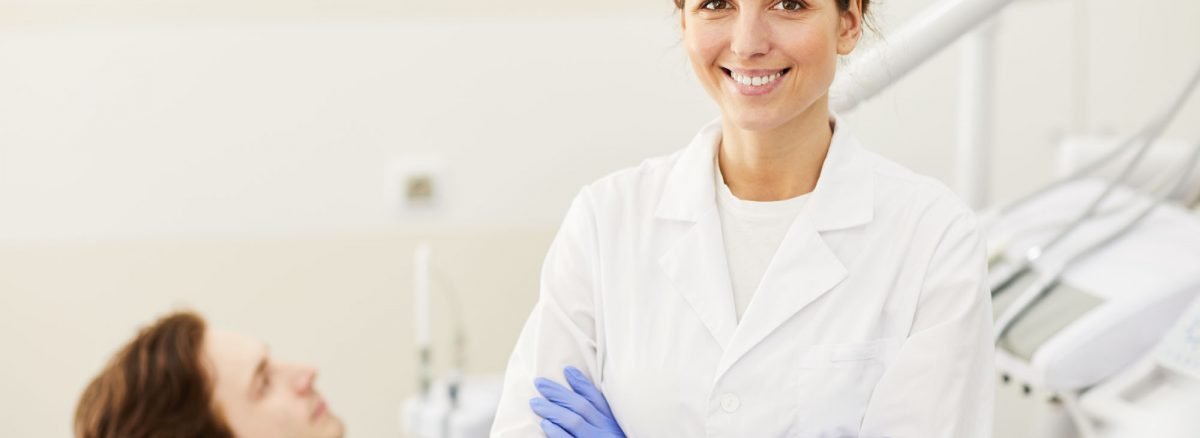- January 9, 2022
- Wellmarkit
- News & Offers
PRSI & Dental Care
If you’re eligible for PRSI entitlements, then you will benefit from some dental advantages.
One of these benefits is a yearly check-up and cleaning, which includes scaling, polishing and fluoride treatment to help prevent the development of tooth decay.
Keep reading to know all the information about PRSI and dental care.
What is PRSI, and what does it cover?
Employers and employees (over 16 years old) are required to pay social insurance contributions to the national Social Insurance Fund. This is compulsory, but some people with unearned income may also be liable for PRSI.
The Social Security contributions you pay depend on the nature of your work. For example, a person employed in a supermarket earning less than €38 per week will be insured under Class J, but if that same person earns over €38 they would probably be classified with Class A PRSI depending on their employment situation.
Anyone with any unearned income over €5,000 is considered to be a ‘chargeable person’, and they are liable to pay the PRSI charge at 4% on all their unearned income. They’ll have to report it under Revenue’s self-assessment system.
Am I eligible for PRSI entitlements?
Despite the availability of a free dental scheme, only 25% of those eligible are taking advantage. Why? Could it be because they’re afraid to show their teeth or maybe nobody told them about the offer!
Everyone who pays PRSI is entitled to a free dental check-up twice a year at their nearest registered provider of the scheme; however, it’s important not just because we need our teeth checked but also as preventive care against future costs such as tooth decay which could lead us into spending more money on expensive treatments later down the line.
Your dentist is the best person to catch any dental issues early on before they become bigger and more expensive. Preventing tooth decay, teeth grinding, gum disease or even cancer can be done with a regular check-up from your dentist!
The Treatment Benefit Scheme is available to the insured worker, self-employed and retired people with a sufficient number of social insurance (PRSI) contributions. To qualify for this, one must have paid Class A, E, P H or S Social Insurance Contributions – depending on their age. One may only be eligible if they’ve made enough Irish PRSI contributions over time, reflecting certain variations in what’s required based on your personal circumstances.
The social insurance contributions of your spouse, civil partner or cohabitant can be transferred onto a single person’s record if the other individual is dependent on them. Qualifying for Treatment Benefit and having enough social security contributions will allow this to happen while ensuring that both parties can maintain their benefits from it.
I’m eligible for PRSI entitlements, what dental benefits do I have?
The Treatment Benefit Scheme, run by the Department of Employment Affairs and Social Protection, provides dental care to insured workers. The self-employed can also receive treatment under this scheme if they have paid a required number of social insurance contributions in their lifetime.
When you need a dental check-up, your dentist will take care of all the details. The Treatment Benefit Scheme entitles PRSI workers to enjoy these privileges with your health plan:
- A full oral examination once a year to make sure everything is healthy and clean. It’s crucial in maintaining your oral health, which includes checking the teeth, tongue, gums, and the roof of the mouth for cysts or any other abnormalities.
- A scale & polish (cap at €15), which helps prevent gum disease by removing plaque buildup. And if that doesn’t do it for you, there are other options like a part-subsidized “Protracted Periodontal Treatment” which is a scale & polish with a gum bonus.
Visiting the dentist at least once a year is important for detecting these issues early on before they become more expensive problems. Cleaning our teeth regularly eliminates bacteria leading us to cavities as well as bad breath due to gum disease, among other things.
You can access a subsidised scale and polish with your hygienist once per year, but you should check ahead of time to ensure that they offer this service at the clinic. College Gate Dental Clinic is one of those practices which does have it available, so if that’s what you are looking for, then head on over there!
PRSI, or the Public Services Retirement Scheme, is an Irish social insurance scheme that pays for retirement benefits and pensions. It also offers dental benefits to its members. If you are not sure if your employer has signed up with PRSI or which of their employees are eligible for this benefit, make sure to ask them! You can also contact the HR department about these questions through email or phone call. No matter whom you talk to, though, be prepared with a list of all your dependents in order to get accurate information on how much coverage they may need.
Knowing what PRSI is and whether you are eligible for it is important. Now that we’ve covered the basics, here are a few more details about dental benefits from PRSI. If you have any questions or want to know if your employer offers this benefit, please leave them in the comments below!

